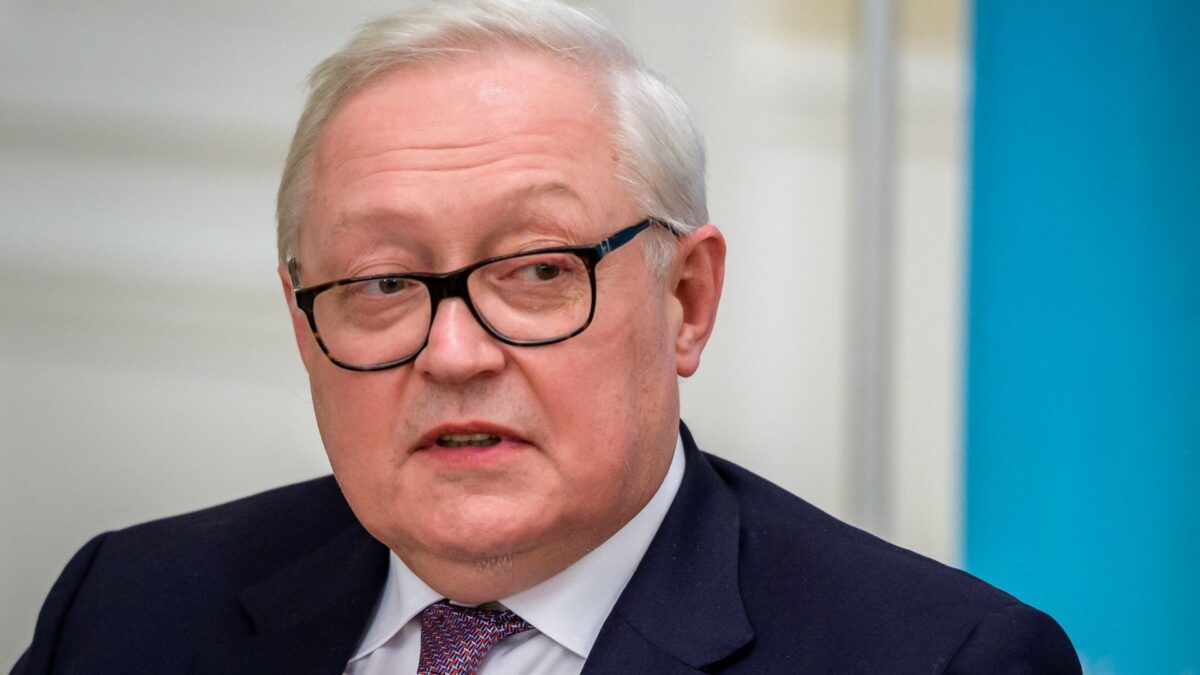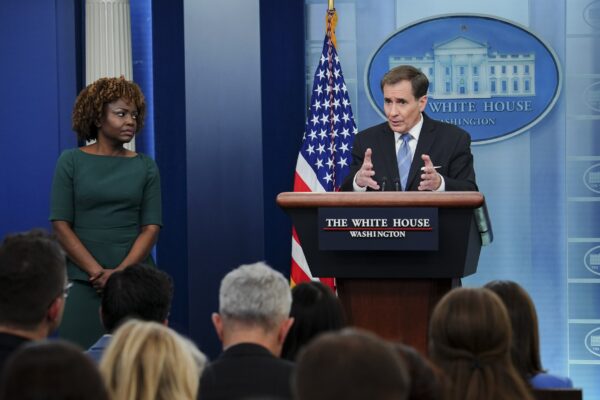


The recent leak of classified U.S. documents by unknown actors could be a “targeted disinformation” campaign designed to “mislead” Moscow, Russian Deputy Foreign Minister Sergey Ryabkov has said.
When asked by reporters about Moscow’s position on the source, motive, and authenticity of the documents, he said: “We don’t have a position.”
“It may be interesting for someone to scrutinize these materials to see whether they are [genuine] documents or fakes,” the diplomat was quoted as saying by Russia’s TASS news agency on April 12.
He added: “Maybe it’s deliberately targeted disinformation.”
Scores of classified U.S. documents, mostly dating from February or March of this year, first appeared last month on online forums such as Discord and 4Chan.
But they only made headlines late last week, when the New York Times, citing “senior Biden administration officials,” reported their appearance on Twitter and Telegram.
Most of the documents purportedly contain classified information related to Russia’s invasion of Ukraine, now in its second year. Others pertain to key U.S. allies, including Israel, South Korea, and Egypt.
“There is no question that they [the leaks] present a risk to national security,” State Department spokesman Vedant Patel told reporters earlier this week.
Both the Pentagon and Justice Department are now trying to find the source of the leaks amid fears they could harm relations with allies and compromise undercover intelligence assets.
According to Patel, Washington is engaging with allies “at the highest levels” to stress its commitment to “safeguarding intelligence” and securing “our partnerships with these countries.”
Many of the leaked documents pertain to U.S. and NATO plans to bolster the Ukrainian military in advance of a planned counter-offensive by Kyiv.
Within this context, leaked information purportedly includes arms-delivery schedules, troop numbers, ammunition expenditure rates, and other critical data related to the conflict.
For example, one document appears to suggest that the supply of munitions for Ukraine’s S-300 air-defense system currently stands on the verge of depletion.
But according to Ryabkov, the leaks—which have dominated headlines since late last week—could be part of a “hybrid warfare” campaign conducted by U.S. intelligence agencies.
A term first coined in 2007, “hybrid warfare” is a strategy that combines conventional, irregular, and cyber warfare to accomplish military and/or political goals.
Other aspects of hybrid warfare include the dissemination of propaganda (“fake news”), the weaponization of legal systems (“lawfare”), and the manipulation of electoral processes.
“Given that the United States is a party to the conflict [in Ukraine] and is waging a hybrid war against us, it’s possible that such ploys [intelligence leaks] may be used to mislead … the Russian Federation,” Ryabkov said.
“Various scenarios and models,” he added, “are not beyond the realm of possibility.”
As of the time of writing, the State Department had yet to respond to The Epoch Times’ request for comment on Ryabkov’s assertions.
Since the New York Times broke the story, the Western press has dropped a number of leak-related bombshells, drawing spirited denials from several capitals—including both Washington and Moscow.
On April 10, the Washington Post reported that, according to one leaked document, Egyptian President Abdel Fattah al-Sisi had ordered the production of thousands of rockets to be covertly delivered to Russia.
The document, dated Feb. 17, further asserts that Al-Sisi instructed subordinates to keep the plan secret “to avoid problems with the West.”
A leading recipient of U.S. financial and military aid, Egypt has long been regarded as a key U.S. ally in the Middle East.
Cairo was quick to dismiss the claim as having “no basis in fact,” while a Kremlin spokesman described it as “yet another falsehood.”
Soon afterward, Washington also appeared to cast doubt on the document’s veracity.
“We’ve seen no indication that Egypt is providing lethal weaponry capabilities to Russia,” U.S. National Security Council spokesman John Kirby told reporters on April 11.
He went on to describe Egypt as a “significant security partner in the region” with which “the U.S. military has a longstanding defense relationship.”
When asked how long it would take for federal agencies to ferret out the source of the leaks, Kirby said: “We’d like to get answers as quickly as we can.”
“But it would be foolish for anybody to try to guess how long that’s going to take,” he added.
Regarding the media frenzy surrounding the leaks, Ryabkov, for his part, voiced skepticism.
“The extent to which all this brouhaha has any kind of grounding in reality … remains open to question,” the diplomat said.


